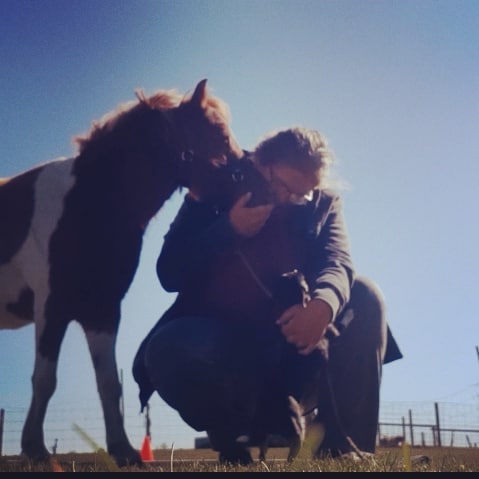The words we choose make a difference.
No matter what the situation, using positive language will create a more positive situation.
Whether it’s self talk, or giving feedback to co-workers, or talking to your family members, the advice is always to frame things using positive language.
Working with horses is no different.
It’s easy to let our frustration leak into the words we use, whether out loud or in our head. The mare that runs past you out the gate is a “stupid cow”, the horse who spooks at the same corner every time is a “moron”, and the yearling that forgets how to lead is a “brat”.
And it’s easy to think it doesn’t matter. After all, the horse doesn’t understand your language, and you’ve blown off some steam, what difference does it make?
The difference is in our own mind. When we label a horse, whether it’s calling them stupid, or stubborn, or something more colourful, we’ve anthropomorphized them (that means, given them human characteristics), and implied to ourselves that they are “misbehaving” on purpose. This gives us mental permission to use punishment, as they should “know better”.
The trouble is, that isn’t true at all. Horses only respond the way they think they’re supposed to, or the way they think they have to in order to survive.
So what if we change our language? Instead of assigning blame or labels, what if we asked questions? Why was the yearling easy to lead yesterday, but not today? What’s changed? What is he reacting to? What can we change in our approach to set him up for success?
Changing our language removes emotional reactions, and every time I’ve ever regretted an action with one of my horses, it’s because my emotions took control.
Next time things aren’t going well, instead of calling names, stop. Ask why, and make a new plan for your next attempt. Approach horse training like a scientist doing an experiment: every result is just more data to analyse and help you make adjustments towards your next effort.
It isn’t easy to change your language, as words become habits. But I know that making a concentrated effort to stop using labels and name-calling, even in my own head, has made me a better horse person.
Try it for a week. Think about the language you use around your horses, whether it’s out loud or not. Find ways to make it more positive, and see what happens in your relationship with your horse. I’d love to hear what you discover!

I watched a series on equine personality traits a few years ago. It was eye-opening and helped me to connect more deeply with my horses. They applied labels, yes, but in a way that would allow the human to understand each horse’s motivation. I had a QH that was slow on his feet. It took him awhile to process what was being asked of him. He was my steady mount. He was labeled as a left-brained introvert. We boarded at a barn where the manager expected immediate compliance to her requests. He was physically and mentally unable to move the thoughts from his brain to his feet without weighing his options first. Having mostly TB’s the manager was used to the horses jumping at her commands. As time went on, my horse began to have physical problems. I saw the light leave his eyes. Because of the personality label he was given I knew it was from the stress of not being physically able to live up to the expectations of the barn manager. We moved to my friend’s farm and my old happy go-lucky steed came back and his health issues went away. It’s my belief that because I understood and respected his personality label that I saved his life. So, I do agree that we can harm our animals and other humans when we categorize them; but, I also think that if used properly labels can help us to see in ways we wouldn’t normally expect.